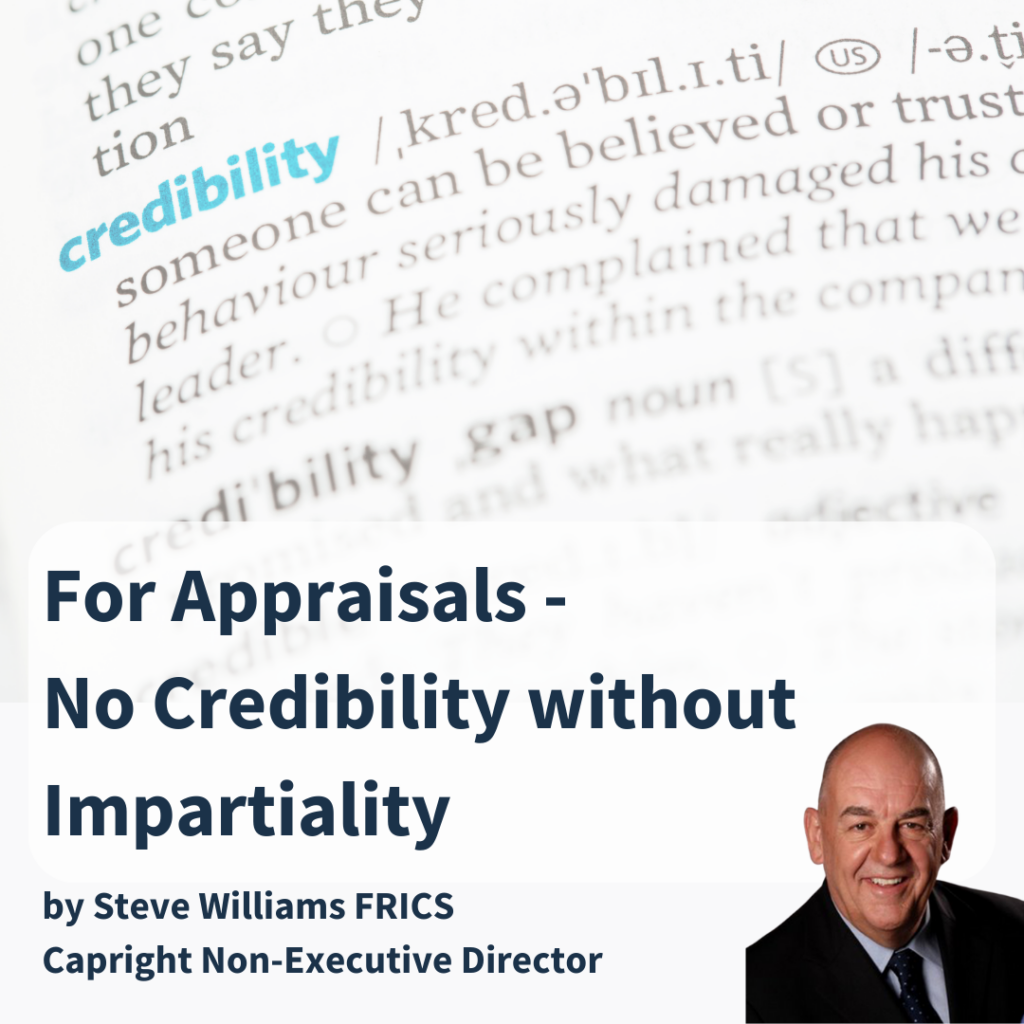For Appraisals – No Credibility without Impartiality
December 12, 2023
Real estate appraisals rarely make headlines. When they do, the story invariably involves a valuation dispute. Take for instance the recent media coverage of a much-publicized trial about an in-house valuation.
As with any complex or unique property, it is almost impossible for a Court to rule on whether an opinion of value is right or wrong. There are just too many pieces of the puzzle. But if we drill down to the core issue, it’s not about the value of the real estate. It’s about whether the parties presenting the opinions are credible.
The Merriam-Webster dictionary defines “credible” as, “offering reasonable grounds for being believed.” A credible opinion is one that can reasonably be taken as true and, therefore, worthy of our trust.
Common sense tells us that, to be trusted, an opinion must be free from any conflict of interest or worse, any perception of bias. Bias is the very anathema of credibility. Impartiality, on the other hand, is its bedrock.
Today, investors demand an ever-higher level of transparency from their valuation experts. Once a disputed opinion comes under the scrutiny of a court of law (or in this case, under the media microscope), the words “in-house opinion” infers an element of doubt.
Put simply, the only way to overcome the mistrust associated with an internal opinion is to engage a competent third party to provide either a well-supported value conclusion or, at least, some form of advisory review. The key ingredient is disinterest. Credibility rests solely with parties who have no horse in the race.



